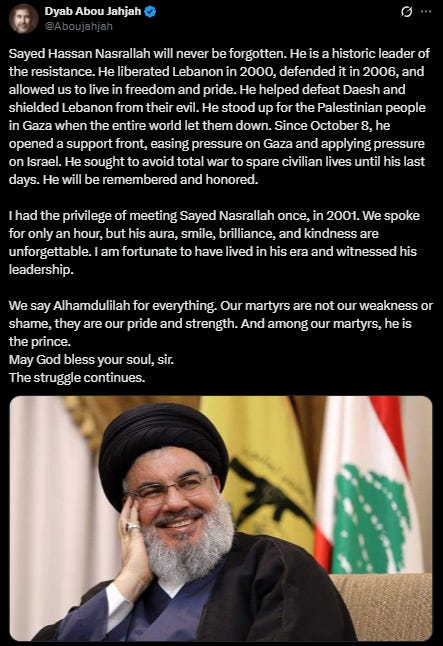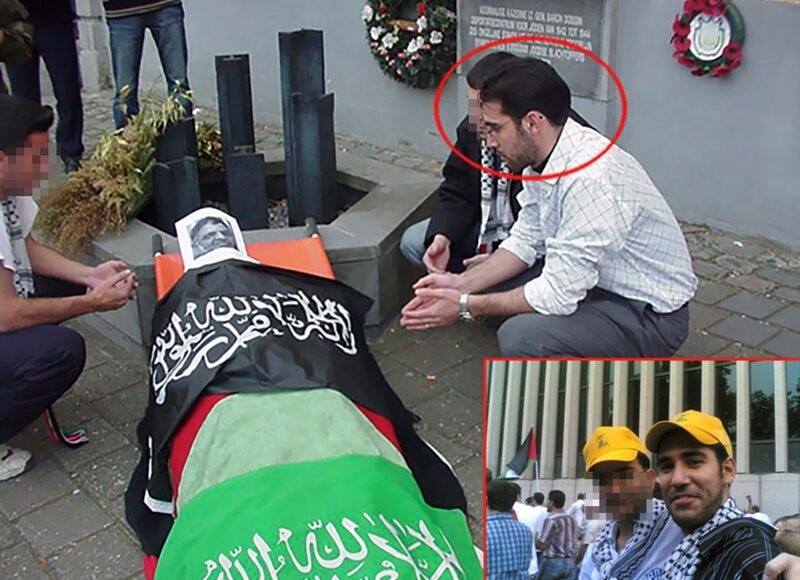Europol Faces Scrutiny Over Cooperation with Hezbollah-Linked Foundation
European law enforcement agency's collaboration with Hind Rajab Foundation raises questions about due diligence after revelations of founder's ties to Hezbollah and its terror financing network

Europol, the European Union’s law enforcement agency, has confirmed cooperation with the Hind Rajab Foundation (HRF), an obscure Belgium-based organization that has filed over 1,000 complaints against Israeli soldiers at the International Criminal Court while maintaining documented ties to Hezbollah’s financing networks.
On October 22, 2025, HRF representatives were invited to address Europol’s annual meeting in The Hague, where they presented their methodology for evidence gathering related to alleged Israeli war crimes. The foundation’s delegation, led by General Director Dyab Abou Jahjah, held bilateral meetings with national war-crimes units from several European countries to discuss sharing evidence on Israeli military personnel.
In response to inquiries, Europol stated it “is maintaining and exploring cooperation with a number of stakeholders, including civil society organisations,” confirming contact with HRF. The agency’s engagement comes despite serious questions about the organization’s leadership, terror connections, and undisclosed funding sources.
Hezbollah Ties and Terror Connections
Abou Jahjah, HRF’s co-founder, described himself in a 2003 New York Times profile as a “very proud” former Hezbollah member who “had some military training.” He was arrested by Belgian authorities in 2002 for inciting Arab riots in Antwerp and has repeatedly pledged allegiance to Hezbollah and Hamas on social media. In 2024, he wrote that he met with former Hezbollah leader Hassan Nasrallah in 2001.

According to a watchdog report, Abou Jahjah is linked through his brother to Soafrimex, a Lebanese-Belgian trading company raided by Belgian authorities in 2003 over money laundering and tax fraud. The United States subsequently designated Soafrimex owner Kassim Tajideen an “important financial contributor to Hezbollah.” The report further alleges that Abou Jahjah co-owns a Lebanese real estate company with Saleem Sleem, a lawyer whose firms have been sanctioned by the U.S. for Hezbollah affiliation.
Israeli security sources allege that Abou Jahjah maintains numerous family and business ties to Hezbollah’s financing network. The watchdog report identifies HRF as “part of Hezbollah’s extensive business networks tied to families and local diaspora connections across Europe, Latin America, and Africa,” supporting operations through “used car exports, counterfeit goods, and commodity trades.”
Extremist Leadership
HRF’s operational director, Karim Hassoun, has also expressed extremist views. He was expelled from a Belgian municipal government body in January after stating he condemned Hamas “for not taking 500 or 1000 hostages, instead of just 200.” He has called for Israel’s elimination “BY ANY MEANS NECESSARY.”

The foundation’s U.S. representative, Jacob Romm, tweeted in March 2025 that “Hamas is the only group meaningfully working to return the hostages” and praised the U.S.-designated terrorist group, the Houthis.
Lawfare Campaign and Lack of Transparency
Founded in late 2024, HRF operates without financial transparency, disclosing no donor information or funding sources. The organization has initiated legal proceedings against Israeli citizens traveling in at least twelve countries and works with the anti-Israel March 30 Movement to publish personal information of Israeli soldiers.
Contradicting Europol’s Own Assessments
The cooperation appears particularly problematic given Europol’s own terrorism assessments. The agency’s 2025 report specifically identifies Hezbollah’s propaganda as having “the potential to fuel increased hatred towards Israel, promote anti-Semitism and incite [violence].” Europol’s 2024 report warns that Hezbollah is “recruiting proxy operatives...to pursue political objectives through violent attacks against Iran’s enemies around the world, including on EU soil.”
Two senior Trump administration officials confirmed awareness of the findings and indicated willingness to enforce sanctions against ICC enablers. Questions remain about Europol’s vetting procedures and whether adequate due diligence was conducted before engaging with an organization whose leadership has documented connections to groups that Europol itself identifies as security threats.


